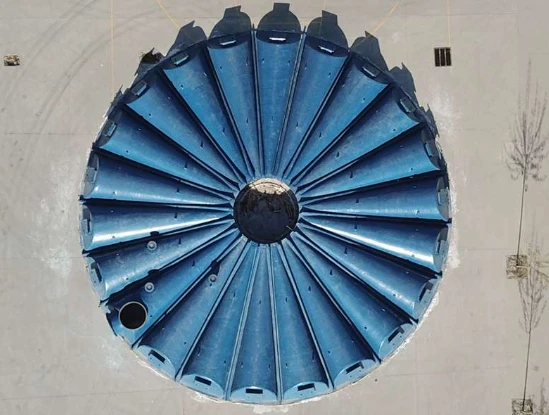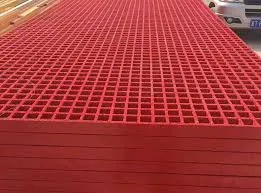
-
 Afrikaans
Afrikaans -
 Albanian
Albanian -
 Amharic
Amharic -
 Arabic
Arabic -
 Armenian
Armenian -
 Azerbaijani
Azerbaijani -
 Basque
Basque -
 Belarusian
Belarusian -
 Bengali
Bengali -
 Bosnian
Bosnian -
 Bulgarian
Bulgarian -
 Catalan
Catalan -
 Cebuano
Cebuano -
 China
China -
 China (Taiwan)
China (Taiwan) -
 Corsican
Corsican -
 Croatian
Croatian -
 Czech
Czech -
 Danish
Danish -
 Dutch
Dutch -
 English
English -
 Esperanto
Esperanto -
 Estonian
Estonian -
 Finnish
Finnish -
 French
French -
 Frisian
Frisian -
 Galician
Galician -
 Georgian
Georgian -
 German
German -
 Greek
Greek -
 Gujarati
Gujarati -
 Haitian Creole
Haitian Creole -
 hausa
hausa -
 hawaiian
hawaiian -
 Hebrew
Hebrew -
 Hindi
Hindi -
 Miao
Miao -
 Hungarian
Hungarian -
 Icelandic
Icelandic -
 igbo
igbo -
 Indonesian
Indonesian -
 irish
irish -
 Italian
Italian -
 Japanese
Japanese -
 Javanese
Javanese -
 Kannada
Kannada -
 kazakh
kazakh -
 Khmer
Khmer -
 Rwandese
Rwandese -
 Korean
Korean -
 Kurdish
Kurdish -
 Kyrgyz
Kyrgyz -
 Lao
Lao -
 Latin
Latin -
 Latvian
Latvian -
 Lithuanian
Lithuanian -
 Luxembourgish
Luxembourgish -
 Macedonian
Macedonian -
 Malgashi
Malgashi -
 Malay
Malay -
 Malayalam
Malayalam -
 Maltese
Maltese -
 Maori
Maori -
 Marathi
Marathi -
 Mongolian
Mongolian -
 Myanmar
Myanmar -
 Nepali
Nepali -
 Norwegian
Norwegian -
 Norwegian
Norwegian -
 Occitan
Occitan -
 Pashto
Pashto -
 Persian
Persian -
 Polish
Polish -
 Portuguese
Portuguese -
 Punjabi
Punjabi -
 Romanian
Romanian -
 Russian
Russian -
 Samoan
Samoan -
 Scottish Gaelic
Scottish Gaelic -
 Serbian
Serbian -
 Sesotho
Sesotho -
 Shona
Shona -
 Sindhi
Sindhi -
 Sinhala
Sinhala -
 Slovak
Slovak -
 Slovenian
Slovenian -
 Somali
Somali -
 Spanish
Spanish -
 Sundanese
Sundanese -
 Swahili
Swahili -
 Swedish
Swedish -
 Tagalog
Tagalog -
 Tajik
Tajik -
 Tamil
Tamil -
 Tatar
Tatar -
 Telugu
Telugu -
 Thai
Thai -
 Turkish
Turkish -
 Turkmen
Turkmen -
 Ukrainian
Ukrainian -
 Urdu
Urdu -
 Uighur
Uighur -
 Uzbek
Uzbek -
 Vietnamese
Vietnamese -
 Welsh
Welsh -
 Bantu
Bantu -
 Yiddish
Yiddish -
 Yoruba
Yoruba -
 Zulu
Zulu
Jan . 31, 2025 04:18
Back to list
fiberglass transport tank
Understanding the intricacies of fiberglass transport tanks can significantly enhance decision-making for transport and storage operations that prioritize efficiency, safety, and longevity. These tanks offer unique advantages that make them indispensable across various industries. The choice of material in constructing these tanks plays a vital role in their performance, and fiberglass stands out as a superior option due to its distinct characteristics.
Industries are increasingly guided by sustainability principles, making fiberglass transport tanks an environmentally friendly choice. The durability and longevity of these tanks mean fewer resources are required over time, promoting sustained usage over disposal and replacement. Furthermore, they are recyclable at the end of their lifespan, underscoring their contribution to sustainable practices within industrial operations. In terms of compliance and regulation adherence, fiberglass tanks are engineered to meet stringent industry standards. Manufacturers consistently adhere to regulations related to safety, construction, and maintenance, ensuring that these tanks meet or exceed specified guidelines. This guarantees peace of mind for operators, knowing their equipment is both safe and compliant with regulatory demands. Real-world experiences showcase the reliability of fiberglass transport tanks. Industries spanning chemical manufacturing, food and beverage, and agriculture report positive outcomes related to operational efficiency, cost savings, and product safety. These tanks provide a proven solution for tackling complex transport challenges, adapting to dynamic operational scenarios with resilient effectiveness. When investing in fiberglass transport tanks, selecting a reputable supplier with a track record of quality and customer satisfaction is paramount. Professional guidance should be sought to ensure all operational requirements are met effectively. With proper maintenance and care, fiberglass transport tanks can offer years of reliable service, becoming an integral part of any transport and storage strategy seeking performance, safety, and sustainability. In conclusion, fiberglass transport tanks stand as a hallmark of innovation and efficiency. Their unique properties cater to the demanding needs of modern industries, ensuring safe, cost-effective, and environmentally responsible transport solutions. As industries advance, the role of these tanks will undoubtedly expand, cementing their place as a cornerstone of industrial operations.


Industries are increasingly guided by sustainability principles, making fiberglass transport tanks an environmentally friendly choice. The durability and longevity of these tanks mean fewer resources are required over time, promoting sustained usage over disposal and replacement. Furthermore, they are recyclable at the end of their lifespan, underscoring their contribution to sustainable practices within industrial operations. In terms of compliance and regulation adherence, fiberglass tanks are engineered to meet stringent industry standards. Manufacturers consistently adhere to regulations related to safety, construction, and maintenance, ensuring that these tanks meet or exceed specified guidelines. This guarantees peace of mind for operators, knowing their equipment is both safe and compliant with regulatory demands. Real-world experiences showcase the reliability of fiberglass transport tanks. Industries spanning chemical manufacturing, food and beverage, and agriculture report positive outcomes related to operational efficiency, cost savings, and product safety. These tanks provide a proven solution for tackling complex transport challenges, adapting to dynamic operational scenarios with resilient effectiveness. When investing in fiberglass transport tanks, selecting a reputable supplier with a track record of quality and customer satisfaction is paramount. Professional guidance should be sought to ensure all operational requirements are met effectively. With proper maintenance and care, fiberglass transport tanks can offer years of reliable service, becoming an integral part of any transport and storage strategy seeking performance, safety, and sustainability. In conclusion, fiberglass transport tanks stand as a hallmark of innovation and efficiency. Their unique properties cater to the demanding needs of modern industries, ensuring safe, cost-effective, and environmentally responsible transport solutions. As industries advance, the role of these tanks will undoubtedly expand, cementing their place as a cornerstone of industrial operations.
Next:
Related Products









